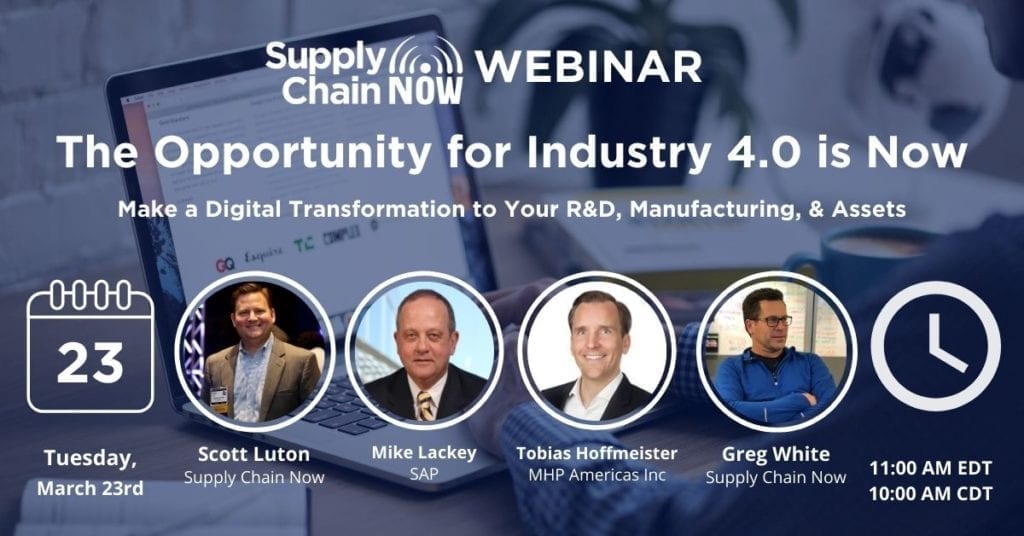
More

April 7, 2021
Catch the Replay of Our Industry 4.0 Webinar with SAP
Did you miss our recent Industry 4.0 webinar with SAP? On March 23rd, Mike Lackey with SAP and Tobias Hoffmeister with MHP Americas Inc joined Scott and Greg to discuss Industry 4.0, how the opportunity to get started is NOW, and how to make that digital transformation to your R&D, manufacturing, and assets. If you missed the live session, no worries! Click here and access it right on the Supply Chain Now website.

October 3, 2025
Leveraging ERM to navigate emerging tariffs and supply chain risks
Leveraging ERM to navigate emerging tariffs and supply chain risks With recent tariff hikes and geopolitical shifts, supply chain risks are more urgent than ever. 63% of businesses reported higher-than-expected supply chain losses despite increased risk management efforts in recent years. Leveraging ERM to navigate emerging tariffs and supply chain risks explores the distinct challenges of a stressed global market and shows how ERM can enhance efforts in identifying, escalating, and responding to emerging supply chain threats. Key areas explored in the guide: Supply chain risks affected by increased tariffs. Why engaging ERM to address supply chain risks is crucial. 8 proactive strategies for addressing emerging supply chain risks. Ready to start engaging ERM to respond to emerging supply chain risks with agility and speed? Download the free guide now
